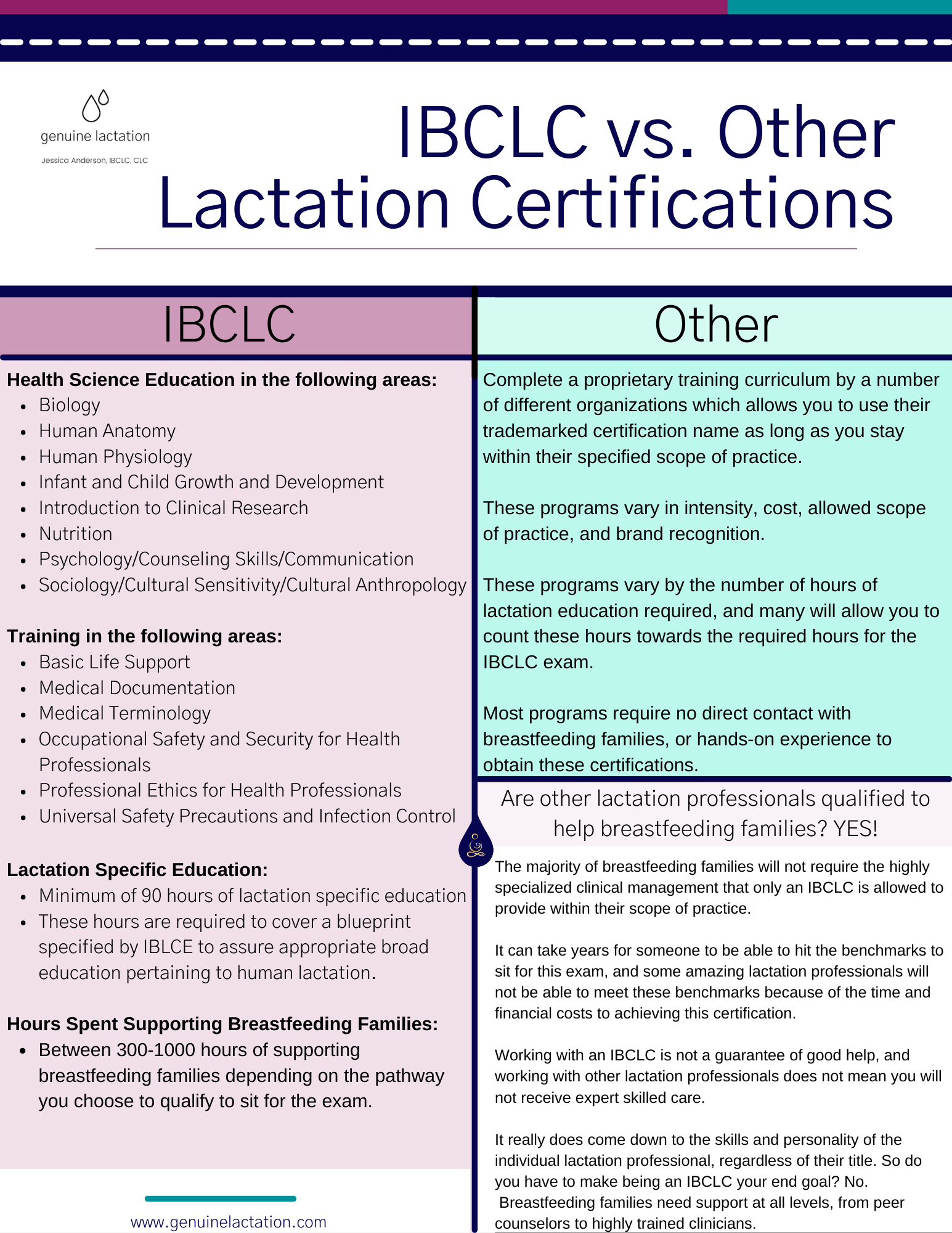IBCLC vs Other Lactation Professionals
WHAT ARE THE DIFFERENCES?
A common question that comes up is the difference between an IBCLC and other lactation professionals. What it essentially comes down to is that the IBCLC certification has the highest benchmarks that need to be meet in order to obtain the right to use this title.
Requirements for IBCLC Certification
Health Science Education in the following areas:
Biology
Human Anatomy
Human Physiology
Infant and Child Growth and Development
Introduction to Clinical Research
Nutrition
Psychology/Counseling Skills/Communication
Sociology/Cultural Sensitivity/Cultural Anthropology
Training in the following areas:
Basic Life Support
Medical Documentation
Medical Terminology
Occupational Safety and Security for Health Professionals
Professional Ethics for Health Professionals
Universal Safety Precautions and Infection Control
Lactation Specific Education:
Minimum of 90 hours of lactation specific education
These hours are required to cover a blueprint specified by IBLCE to assure appropriate broad education pertaining to human lactation.
Hours spent supporting breastfeeding families
Between 300-1000 hours of supporting breastfeeding families depending on the pathway you choose to qualify to sit for the exam.
Requirements for other Lactation Certifications
Complete a proprietary training curriculum by a number of different organizations, which allows you to use their trademarked certification name as long as you stay within their specified scope of practice.
These programs vary in intensity, cost, allowed scope of practice, and brand recognition.
These programs vary by the number of hours of lactation education required, and many will allow you to count these hours towards the required hours for the IBCLC exam.
Most programs require no direct contact with breastfeeding families, or hands on experience to obtain these certifications.
So are other lactation professionals actually qualified to help breastfeeding families? YES!
The majority of breastfeeding families will not require the highly specialized clinical management that only an IBCLC is allowed to provide within their scope of practice. It can take years for someone to be able to hit the benchmarks to sit for this exam, and some amazing lactation professionals will not be able to meet these benchmarks because of the time and financial costs to achieving this certification.
Working with an IBCLC is not a guarantee of good help, and working with other lactation professionals does not mean you will not receive expert skilled care. It really does come down to the skills and personality of the individual lactation professional, regardless of their title.
So do you have to make being an IBCLC your end goal? No. Breastfeeding families need support at all levels, from peer counselors to highly trained clinicians.
What is important is that you think about how you want to support breastfeeding families, and find the certification that will allow you to do that in the most efficient manner for your family.


